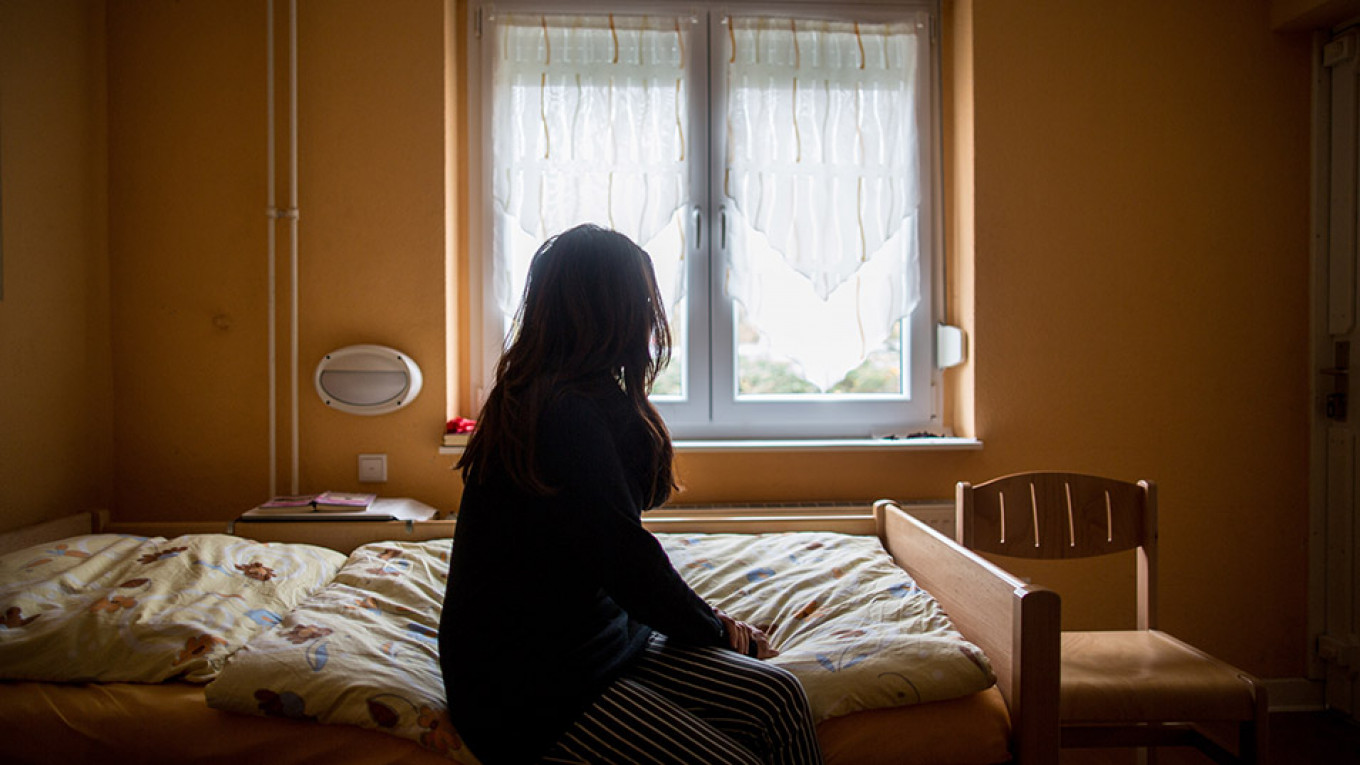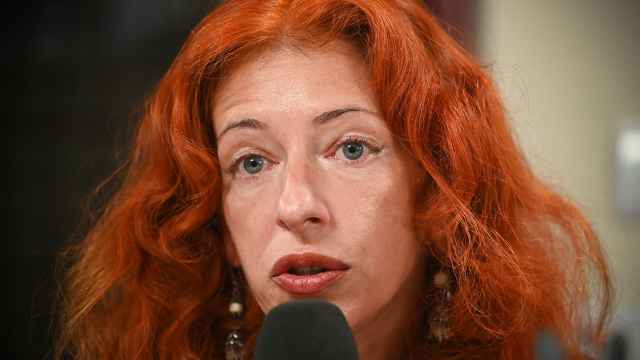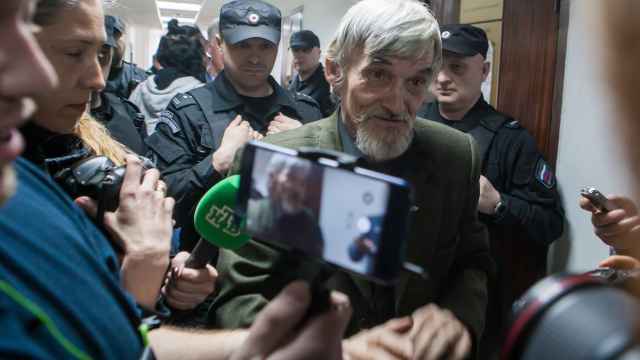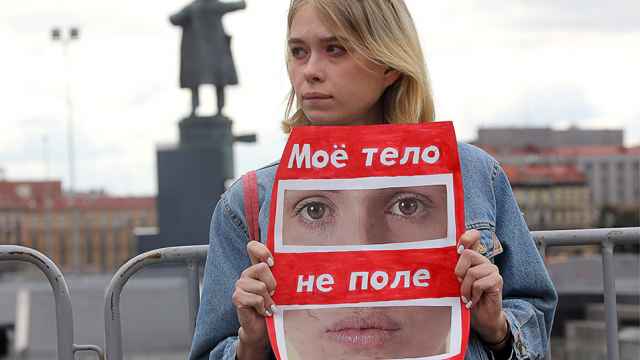Russia failed to protect a woman from repeated acts of violence by her former partner, the European Court of Human Rights ruled on Tuesday, saying her case showed that Moscow was not facing up to its domestic abuse problem.
Valeriya Volodina, who now uses a different name for security reasons, was assaulted, kidnapped and stalked by her former partner after she left him in 2015 and moved out of their shared home in the Russian city of Ulyanovsk, the court said.
The police never opened a criminal investigation into violence and threats that she reported to them from January 2016 to March 2018, it said in its statement.
In one such episode, she was forced to have an abortion after he punched her in the face and stomach when she was pregnant. In other incidents, the partner, whom she met in 2014, cut her car's brake hose and stole her identity papers, it said.
After she moved to Moscow, Volodina discovered a GPS tracker planted in her bag and the former partner, identified only as S., subsequently started stalking her outside her home and attempted to drag her from a taxi.
The court in Strasbourg said Russia's police had interviewed the partner and carried out pre-investigation inquiries but not opened formal proceedings against him as it deemed that "no publicly prosecutable offense had been committed."
Russian legislation does not define or mention domestic violence as a separate offense or aggravating element in other offenses and there is no mechanism for imposing restraining or protection orders, the court said.
"Those failings clearly demonstrated that the authorities were reluctant to acknowledge the gravity of the problem of domestic violence in Russia and its discriminatory effect on women," the court said in a statement.
Each year, about 14,000 women die in Russia at the hands of husbands or other relatives, according to a 2010 United Nations report.
Police finally opened a criminal investigation only in March 2018 when the partner circulated photographs of her on social networks without her consent, the court said.
The court said Russia's response had been "manifestly inadequate" and ruled unanimously there had been two violations of the European Convention on human rights, one on the prohibition of discrimination and the other on the prohibition of inhuman or degrading treatment.
Russia's Justice Ministry said it had three months to decide whether to appeal against the ruling, but that it would study the findings of the court, Interfax news agency reported.
A Message from The Moscow Times:
Dear readers,
We are facing unprecedented challenges. Russia's Prosecutor General's Office has designated The Moscow Times as an "undesirable" organization, criminalizing our work and putting our staff at risk of prosecution. This follows our earlier unjust labeling as a "foreign agent."
These actions are direct attempts to silence independent journalism in Russia. The authorities claim our work "discredits the decisions of the Russian leadership." We see things differently: we strive to provide accurate, unbiased reporting on Russia.
We, the journalists of The Moscow Times, refuse to be silenced. But to continue our work, we need your help.
Your support, no matter how small, makes a world of difference. If you can, please support us monthly starting from just $2. It's quick to set up, and every contribution makes a significant impact.
By supporting The Moscow Times, you're defending open, independent journalism in the face of repression. Thank you for standing with us.
Remind me later.






